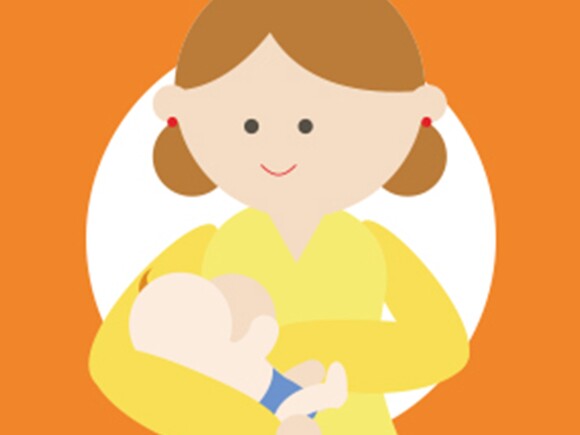
Sources
Amir LH, Academy of Breastfeeding Medicine Protocol Committee. ABM Clinical Protocol #4: Mastitis, revised March 2014. Breastfeed Med 2014; 9(5):239-43.
Angelopoulou A, Field D, Ryan CA et al. The microbiology and treatment of human mastitis. Med Microbiol Immunol 2018, 207(2):83-94.
Arroyo R, Martin V, Maldonado A et al. Treatment of infectious mastitis during lactation: Antibiotics versus oral administration of Lactobacilli isolated from breast milk. Clin Infect Dis 2010; 50(12):1551-8.
Cullinane M. Amir LH, Donath SM et al. Determinants of mastitis in women in the CASTLE study: a cohort study. BMC Fam Pract 2015; 16:181. doi: 10.1186/s12875-015-0396-5.
Core curriculum for lactation consultant practice: International Lactation Consultant Association, Mannel, Martens, Walker, Eds, 3rd ed; 2013.
Diaz-Ropero MP, Martin R, Sierra S et al. Two Lactobacillus strains, isolated from breast milk, differently modulate the immune response. J Appl Microbiol 2007; 102(2):337-43.
Fernandez L, Langa S, Martin V et al. The human milk microbiota: Origin and potential roles in health and disease. Pharmacol Res 2013; 69(1):1-10.
Hurtado JA, Maldonado-Lobon JA, Diaz-Ropero MP et al. Oral administration to nursing women of Lactobacillus fermentum CECT5716 prevents lactational mastitis development: A randomized clinical trial. Breastfeed Med 2017; 12(4):doi:10.1089/bfm.2016.0173
Infant Feeding Survey, UK, 2012;
Health and Social Care Information Center, HNS, IFF Research, 2012. Infant feeding survey 2010. http://digital.nhs.uk/catalogue/PUB08694 (accessed May 23, 2018)
Jimenez E, de Andres J, Manrique M et al. Metagenomic analysis of milk of healthy and mastitis-suffering women. J Hum Lact 2015, 31(3):406-15.
Jost T, Lacroix C, Braegger C et al. Assessment of bacterial diversity in breast milk using culture-dependent and culture-independent approaches. Br J Nutr 2013; 110(7):1253-62.
Kvist L. Re-examination of old truths: replication of a study to measure the incidence of lactational mastitis in breastfeeding women. Int Breastfeed J 2013, 8(1):2. doi:1186/1746-4358-8-2.
Lara-Villoslada F, Olivares M, Sierra S et al. Beneficial effects of probiotic bacteria isolated from breast milk. Br J Nutr 2007; 98(Suppl 1):S96-100.
Li S-W, Watanabe K, Hsu C-C et al. Bacterial composition and diversity in breast milk samples from mothers living in Taiwan and mainland China. Front Microbiol 2017; 8:965. Doi:10.3389/fmicb.2017.00965.
Martin R, Olivares M, Marin ML et al. Probiotic potential of 3 Lactobacilli strains isolated from breast milk. J Hum Lact 2005; 21(1):8-17.
Olivares M, Diaz-Ropero MP, Martin R et al. Antimicrobial potential of four Lactobacillus strains isolated from breast milk. J Appl Microbiol 2006; 101(1):72-9.
Soto A, Martin V, Jimenez E et al. Lactobacilli and Bifidobacteria in human breast milk: Influence of antibiotherapy and other host and clinical factors. J Pediatr Gastroenterol Nutr 2014; 59(1):78-88.
Spencer JP. Management of mastitis in breastfeeding women. Am Fam Physician 2008; 78(6):727-32.
Victora CG, Bahl R, Barros AJD et al. Breastfeeding in the 21st century: epidemiology, mechanisms, and lifelong effect. Lancet 2016; 387(10017):475-90.
World Health Organization. Mastitis causes and management. Geneva, World Health Organization, 2000.






